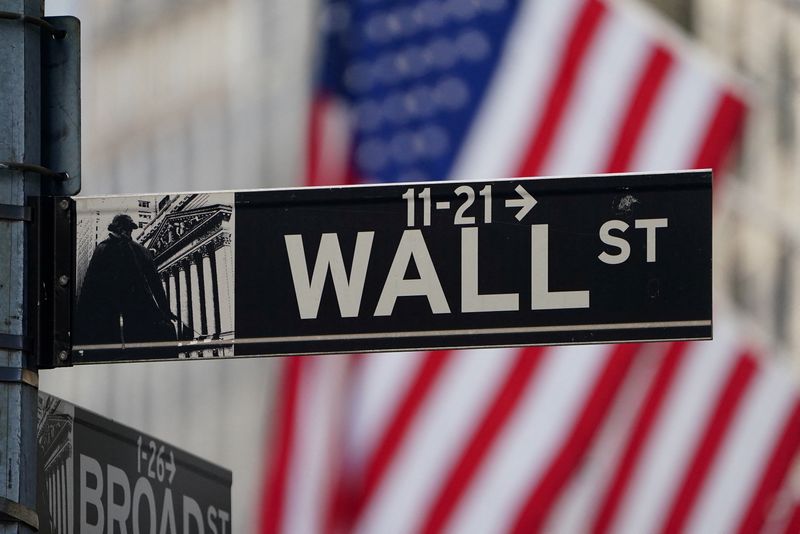By Huw Jones
LONDON (Reuters) - The European Union, Britain and Switzerland have little choice but to copy Wall Street in speeding up share trading, though it will come too late to avoid a transatlantic mismatch in market practice, industry officials said.
EU securities watchdog ESMA on Thursday called for industry views on cutting the time it takes to complete a share trade, a step regulators say removes risk and cost from trading, particularly when markets are volatile.
A shorter settlement time might increase efficiency, cut collateral needs, and "increase the competitiveness and the attractiveness of EU financial markets", ESMA said.
Moving from the current system known as T+2, or settling a trade within two days of the transaction, to T+1 or one day, cuts the time cash is tied up to back trades.
Wall Street, representing around 46% of the global equity market, is due to make the change in May 2024, piling pressure on the EU, Britain and Switzerland to follow suit given the global nature of financial markets, while adapting to the U.S. switch at the same time.
International investors own about 40% of U.S. corporate value, with foreign purchases of U.S. shares totalling $30.6 trillion in 2021, the Federal Reserve has said.
ESMA is seeking views for a cost/benefit analysis of moving to at least T+1, though few believe it will not go ahead given advances in technology, regulatory pressure, and gravitational pull of Wall Street. It will report back by the fourth quarter of next year.
"Moving to T+1 should not only be a question of 'when', but also 'why' and 'how'," said Pete Tomlinson, director for post-trade at the Association for Financial Markets in Europe (AFME), an industry body representing banks and asset managers.
Bankers says that moving to T+1 in Europe will be more complex than in the United States given the significantly greater number of exchanges, clearers, and settlement houses in Europe.
EFAMA, a European funds industry body, says the move on Wall Street will require changes to existing IT systems for European firms and U.S. investors who trade European shares.
"European concerns are that some operations and even some trading activity will move to the U.S. or Canada given that wealth and fund managers cannot simply ignore the U.S. market," a paper for the SWIFT Institute in May said.
CLS, which settles forex transactions used to pay for share purchases, is exploring how to accommodate fund managers outside the United States, whose systems operate under T+2 and now are faced with less time to line up money to finalise U.S. trades.
Britain has set up an Accelerated Settlement Taskforce.
"Given global progress towards faster settlement, we think it's important for the UK to establish momentum for a similar move, where appropriate, while considering the impact on all parts of the market carefully," said Richard Knox, director of financial services in Britain's finance ministry.
But finding industry consensus on a start day for the changeover could be tricky given the investment in back offices and technology that would be needed, said Charlie Geffen, who heads the UK taskforce.
"The costs are largely going to fall on the buy side and the benefits largely accrue to the sell side. That creates a dynamic that provides a challenge," Geffen told a City & Financial conference. He is due to publish an interim report later this year, with final recommendations by December 2024.
CROSS-CHANNEL COORDINATION
Operations staff at wealth and fund managers are less prepared for shorter settlement times than custodians and regulators, the report for the SWIFT Institute said.
There would be challenges if the UK and the EU did not make the change at the same time, Geffen has cautioned.
For example, if exchange-traded-funds moved to T+1, but their underlying shares remained on T+2, there would be a mismatch that creates uncertainty and complexity.
The euro bond market is heavily traded in London, outside the EU, but settled in Brussels or Luxembourg, inside the bloc. Differing speeds in the move to T+1 could mean investors shifting trading locations, Geffen has said.
"It is important for public authorities in the EU and UK to consider the possible benefits of a coordinated approach to moving to T+1 given the high level of interconnectivity between these markets," AFME's Tomlinson said.
ESMA said regulatory intervention may be needed to ensure a harmonised switch among all market participants.
Switzerland is watching the EU and Britain, though its Madrid exchange arm would have to fall in line with EU moves.
Other potential headaches would also need addressing.
Bankers say that cutting the time available to prepare for settlement, such as lining up currency for payment, could lead to more "failed" settlements.

Stock lending to short-sellers such as hedge funds may also become an issue: parcels of shares are often lent out, and moving to T+1 would be mean less time for recalling them.
There is already talk of moving to the next stage after T+1: instant or simultaneous settlement. India's market regulator expects instant settlement of stock market trades by October 2024. Mainland China already operates a T+0 for some securities.